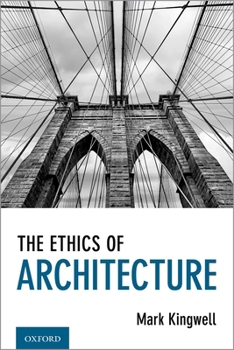The Ethics of Architecture
A lively and accessible discussion of how architecture functions in a complex world of obligation and responsibility, with a preface offering specific discussion of architecture during and after the COVID-19 pandemic. What are the special ethical obligations assumed by architects? Because their work creates the basic material conditions that make all other human activity possible, architects and their associates in building enjoy vast influence on how we all live, work, play, worship, and think. With this influence comes tremendous, and not always examined, responsibility. This book addresses the range of ethical issues that architects face, with a broad understanding of ethics. Beyond strictly professional duties - transparency, technical competence, fair trading - lie more profound issues that move into aesthetic, political, and existential realms. Does an architect have a duty to create art, if not always beautiful art? Should an architect feel obliged to serve a community and not just a client? Is justice a possible orientation for architectural practice? Is there such a thing as feeling compelled to "shelter being" in architectural work? By taking these usually abstract questions into the region of physical creation, the book attempts a reformulation of "architectural ethics" as a matter of deep reflection on the architect's role as both citizen and caretaker. Thinkers and makers discussed include Le Corbusier, Martin Heidegger, Lewis Mumford, Rem Koolhaas, Jane Jacobs, Arthur Danto, and John Rawls.
Format:Hardcover
Language:English
ISBN:0197558542
ISBN13:9780197558546
Release Date:March 2021
Publisher:Oxford University Press
Length:176 Pages
Weight:0.65 lbs.
Dimensions:0.8" x 5.7" x 8.3"
Customer Reviews
0 rating





